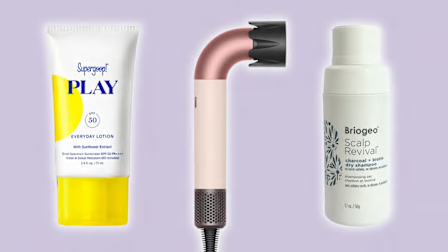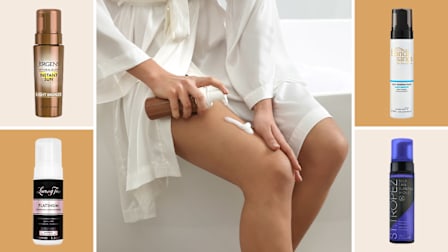Best Anti-Aging Skin Care
We’ve talked to experts about how to protect your skin against dryness, irritation, fine lines, and wrinkles over time

Like bones, skin often becomes more fragile with age. It may seem more delicate and prone to tears and irritation than it once did, and feel drier and itchier.
Many factors—including loss of collagen, changes in blood vessels, sun exposure, and medications—combine to affect how well skin does its job.
What's Causing Those Skin Changes
Your skin is composed of several layers, each becoming thinner over time. All the layers contain collagen, the protein that provides structure and keeps skin thick and firm.
With age and sun exposure, collagen production declines, often causing sagging, fine lines and wrinkles, and slower healing. In fact, wound healing may occur at a slower rate.
In addition to the forces of aging and the environment, several other factors can contribute to thinning skin. Many common medications, including oral steroids (such as prednisone), topical steroids (such as hydrocortisone), and some blood thinners (including aspirin), can thin skin or cause it to bruise more easily.
Skin doesn’t just get thinner as you age; it also gets drier. Up to 85 percent of older adults have extremely dry skin (dubbed xerosis). Menopause can cause skin to both thin and dry, as estrogen helps retain and restore skin moisture.
But it’s not inevitable: When the outermost layer of the skin is functioning at its best, it keeps moisture in and protects the skin from external assaults (such as chemicals, smoke, and other irritants). Improving this layer’s strength will help your skin feel less dry and irritated, and look better.
Update Your Skin-Care Habits
“Taking proper care of your skin becomes even more important as you age,” says Shari Lipner, MD, PhD, a dermatologist at Weill Cornell Medicine and NewYork-Presbyterian Hospital in New York City. “And that may mean changing some of your skin-care products and habits.”
For instance, you should forgo long, hot showers and baths; both can dry out and irritate the skin, especially during cold, dry weather.
You’ll also want to reevaluate some of the products in the bath or shower. Toss out any harsh scrubs, for instance. If you want to exfoliate the dead, dry skin, try rubbing a soft washcloth over wet skin, says David E. Bank, MD, director of the Center for Dermatology, Cosmetic & Laser Surgery in Mount Kisco, N.Y.
Look for a gentle soap—bar or liquid—that’s fragrance-free, because fragrances may irritate sensitive skin and dry it out. And as soon as you towel off, be sure to moisturize from head to toe.
“If you layer your moisturizer on top of still-damp skin, it helps lock in the moisture,” Lipner says. Creams are richer and more hydrating than lotions; ointments (such as petroleum jelly) are best at sealing the barrier and retaining water.
A review of 33 studies, published in the British Journal of Dermatology in 2013, found that a combination of ingredients that hold moisture in the skin (such as glycerin, hyaluronic acid, and lactic acid) and those that contain fatty ingredients to smooth it (such as cocoa butter, lanolin, and petrolatum) are best at improving dryness and reinforcing this critical barrier. The best skin-care strategy uses ingredients from both groups.
Care for Wounds the Right Way
Thin, fragile skin is more prone to cuts and scrapes than healthy skin. But beware of adhesive bandages, which can irritate or cut the skin, Bank says. Look for labels that say “sensitive skin,” or cover the wound with a nonstick pad and use paper tape or an elastic wrap (like an Ace bandage) to keep it in place.
In people with diabetes, peripheral artery disease, and some other health issues, wounds can become chronic—generally defined as not healing within three months despite treatment. Talk to your doctor if a cut is not healing normally.
Editor’s Note: A version of this article also appeared in the September 2018 issue of Consumer Reports On Health. We’ve updated this article by checking in with our original sources and adding the latest information on the best anti-aging skin care.




















